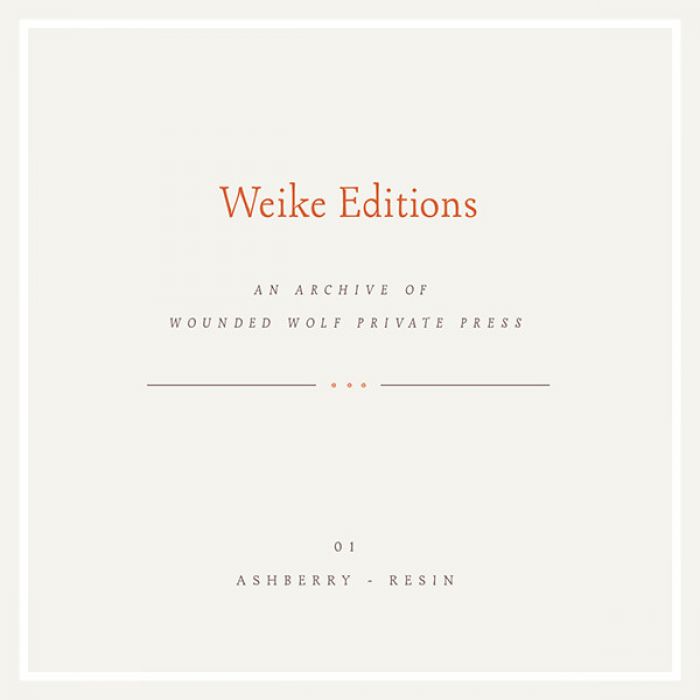Resin by Ashberry (Review)

We live in a society where art, and more specifically, music has increasingly become a commodity. The Internet, music blogs, file-sharing, MySpace — these have certainly made it easier to find, exchange, and promote music like never before. But sometimes, I can’t shake the feeling that by reducing music to ones and zeroes transmitted over the ether and stored in hard drives, we’ve made music even more disposable. We download songs, throw them on our iPods, give them a spin or two, and that’s it.
But there’s nothing physical to ground the music, to attach to it some measure of permanence or to provide even a small check against our increasing rate of consumption, and so it becomes all the more inconsequential: a commodity to be traded, examined, and tossed off with just a few mouse clicks.
There are three ways to react to such a state of affairs. One, we can fully embrace it; after all, music has always been an ephemeral thing, and there are undoubtedly numerous good things about such a situation, such as a substantial increase in convenience and personalization. Two, we can react against the societal shifts and resist them altogether. But that strikes me as needlessly luddite-ish, an approach that is doomed to an obsolescence noone will even notice has occurred. Or three, we can strive to find some sort of middle ground, to take the best of both extremes.
Wounded Wolf is a label that has taken that third course. The label, founded by Atay İlgün, only exists online, in the ether. However, Wounded Wolf releases are only available as extremely limited run editions contained within handmade packaging. And Ashberry’s Resin — the label’s first release — is a three-track EP that travels even further down the third path.
Resin’s lush, hallucinatory take on ambient music is perfectly suited for an online-based label, and yet the music, for all its atmospherica, feels distinctly “down to earth.” Made up of numerous field recordings, creaky pianos, lazily strummed guitars, and orchestral drones, Resin is often reminiscent of Lucid’s soundscapes — soundscapes that, regardless of their drones and drifts, feel sublimely anchored to a specific time and place. Indeed, the effect of listening to Resin’s three songs is akin to ambling through a crepuscular field and stumbling across some old cabin or farmhouse littered with keepsakes, mementos, and other detritus — items which the music then takes the time to explore one by one.
It’s certainly not the type of music that one normally associates with the state of affairs outlined earlier. Everything about the music, from its structure to the fact that all three songs average about seven minutes in length to the handmade packaging in which it comes, insists on resisting the hastiness that characterizes so much of how we acquire and evaluate music today. Resin is music that encourages you to simply sit and listen — not so that you can get on to the next download, but so that you may investigate more fully the little worlds contained within its compositions.